Auld Lang Syne: Farawayeyes’ Favorite Reflections on Supernatural
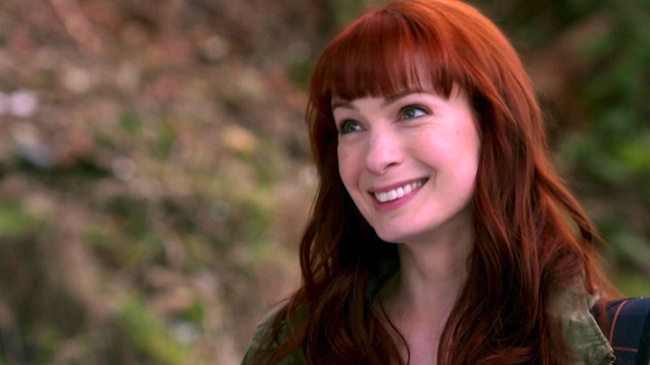
This profile is about one of my all time favorite Supernatural writers, Robbie Thompson. It was an honor to write about his various writing prior to Supernatural, all of his episodes, and to capture what makes his writing pop for us fans. Getting the chance to connect with him via Twitter for an impromptu interview made the whole article even better—it’s even more special now after the meet and greets I’ve had with Mr. Thompson since then.
Farawayeyes
Profile on Supernatural Writer Robbie Thompson
Part 1 Originally Published: July 11, 2013
It’s hard to believe that Robbie Thompson has only written for two seasons of Supernatural. His episodes are full of pop culture, heart, soul, and brotherly moments that make it seem as if he’s been writing for the show since the beginning. Thompson has managed to grasp the core of the story easily and has written some of the most memorable episodes in the past two seasons. Episodes such as “Slash Fiction,” “The Girl with the Dungeons and Dragons Tattoo,” “LARP and the Real Girl,” and “Pac Man Fever,” are full of such great moments and characters that they have become fan favorites from start to finish. Thompson also shows that he is willing to be brave by tackling controversial episodes by writing season 8’s “Bitten,” an episode that featured very little of the show’s leads, all while managing to maintain the tone and flavor of the show. Let’s get to know him a bit better, shall we?
It was an honor to conduct a couple interviews on Twitter with Mr. Thompson, and I will be using his answers throughout. A complete version of the interviews will appear towards the end of the second part of this profile.
Before we discuss his episodes for Supernatural, let’s find out a bit more about Robbie Thompson’s career.
As any writer will tell you, they were bit by the writing bug early—probably in childhood. Something about story and characters and the “what if” that surround it compel some to explore it for life. All writers got started somehow, and Thompson says, “I wrote comics and short stories as a kid. All sci-fi. Comics helped me learn to read– they were and are a big influence. [sic]” It would seem he would be destined to eventually end up writing for a little show that could.
Thompson was a staff writer for The New Woody Wood Pecker Show (Cartoon Network 1999). For two seasons of the rebooted cartoon, Thompson wrote a handful of segments. Sharing writing credit with Travis Clark and Richard Pursel for the segment “Electric Chilly,” we see a prime example of the humor and tight writing we’ve come to expect from a Thompson script on Supernatural—but in cartoon form. The short cartoon follows Chilly Willy, a penguin that doesn’t handle his frigid climate particularly well. He is shivering as he watches TV when an infomercial selling an electric blanket “so hot it can cook breakfast in bed” catches his eye. Chilly orders it and in cartoon fashion it arrives instantaneously. The penguin quickly makes use of his purchase—but there’s a minor problem. He has to unplug the TV! Which one does he sacrifice? The TV or the new warm blanket? Neither. He promptly makes use of the neighbor’s electricity, taking their TV out in the process. Chilly doesn’t have any lines, but there are some great zingers for the perturbed dog neighbor, Smedley, such as “That’s the problem with penguin meat. It runs right through you,” and “Frigid Winter! That got a five ice cube rating!” and “Now this here is the flake that broke the snowman’s back.”
For the segment Thompson wrote alone, “Woody and the Termite,” we are treated to some of his science fiction savvy as he unleashes a genetically altered termite on Woody’s forest. Woody, behind on his woodpecker duties, needs help to reach his goal of “5,000 peck holes” or face demotion by Mother Nature. The solution to his problem is this termite, but it ends up being way more trouble than its worth as Woody learns the hard way. Not only is the termite a scientific marvel that consumes wood at record pace, it is also a childish monster. The segment has the great whimsy and hilarity of cartoons, but the sophistication to be entertaining and subtle in its humor and twist at the end.

Thompson’s first foray into prime-time television drama comes in the short-lived Jericho ( CBS 2007). The show was a science fiction series that revolved around a town dealing with the fallout of nuclear attacks on major cities within the United States. About writing for the genre, Thompson says, “huge sci/fi fan– it’s all i’ve ever wanted to write [sic].” He only wrote one episode for the series, “A.K.A.” The storyline is complex, centering on the truth about the nuclear attacks that struck the country. In the episode, Jake Green breaks into Robert Hawkin’s house, after he discovers that the F.B.I. Agent’s badge matches the fake ones being talked about in connection to a terrorist cell. It would seem that this isn’t Thompson’s first show with characters using faux government I.D.s!
It’s a tight and suspenseful episode, sharply written with the threads of its story weaving into a mystery that reveals big answers and raises more questions. It is subtle in its nature, too. Alongside the standoff between Jake and Robert, we are shown the humanity that has become a hallmark for Thompson in his episodes for Supernatural. We are shown a mother struggling to feed her family—and to kill one of the family chickens for dinner. We also see a wife try to make her husband come home for dinner, to spend time with her, rather than camping out in the deer stand futilely. There’s also a school teacher trying to engage kids in learning—despite the change in the country since the attacks—only to lose all her students but one to more pressing needs. It speaks enough to the human condition and makes these characters richer within their apocalyptic settings, and it is this trademark of Thompson’s that makes us invested in the story here.
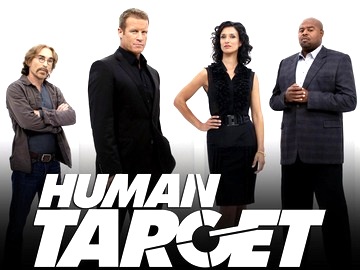
Thompson’s second venture into television drama was another short-lived series, Human Target (FOX 2010). The action/adventure drama centered on Christopher Chance, an unorthodox body guard that uses himself as the lure to protect his clients. It is a bit of a departure from his usual genre, but the show has roots in DC Comics as the main character is based upon a character created by Len Wein and Carmine Infantino. Thompson served as a staff writer for the first season, penning the season finale “Christopher Chance” with Jonathan E. Steinberg. It examines the creation of Christopher Chance as he journeys from criminal and villain to the hero. Not unlike Sam and Dean on Supernatural, Chance works in areas of grey by using fake names and unorthodox means to complete his missions. Thompson and Steinberg weave this story together well, all while telling a story in the present as Chance faces down his former employers by telling them what happened with the last kill he was supposed to make but didn’t: Katherine Walters. (Side note: in another Supernatural connection, Katherine is played by Amy Acker, seen as Andrea Barr in “Dead In the Water”).
There is a number of great lines peppered throughout the episode, mostly delivered with zing by Chance, such as “You can call me Connie” to Detective Laverne Winston, and “Don’t get up, I got it,” said to the guard dog in his home base. We’re also treated to a moral debate about what it means to be a good guy and what makes a bad guy and when those lines blur as we watch Chance’s evolution into the man facing down the interrogator sent by his former boss. Loyalty comes up as well, as Chance was considered the son and next in line to the crime boss he served. The suspense is what pushes the story along well, keeping us engaged and invested in Chance’s predicament and how it is he became the Human Target. An action episode it may be, but we are most invested in Chance’s relationship to Katherine as he transitions from attempted assassin to protector.
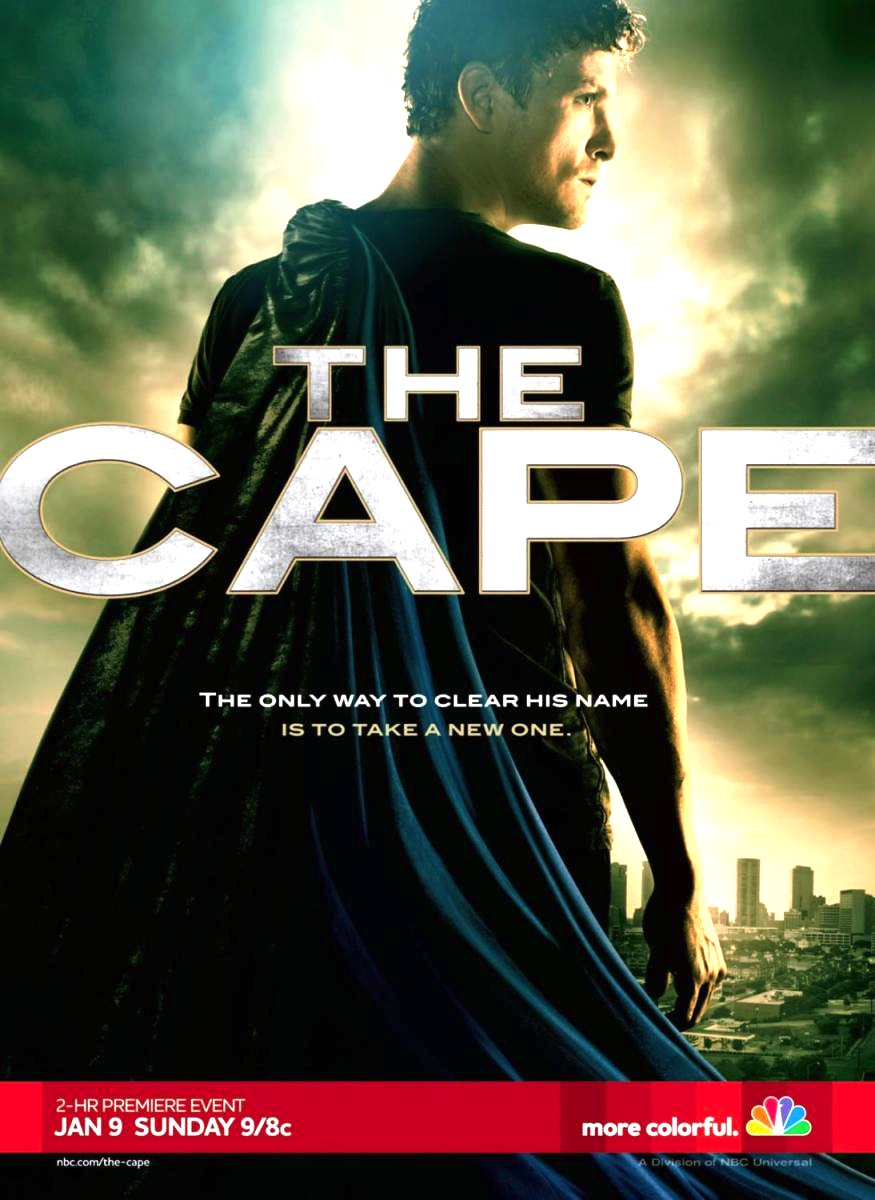
For Thompson’s last television project prior to Supernatural, he worked as a story editor for The Cape (NBC 2011). He co-wrote the episode “The Lich: Part 2” with Toni Graphia. The series was short-lived at ten episodes. It focused on Vince Faraday, a cop framed for murder and now going under the guise of a vigilante known only as the Cape. The Cape embraces all the comic book genre has to offer, playing very much like one in live action. The show had all its hallmarks: the masked hero, the disfigured villain, the damsel in distress being held captive by the villain, and the family the hero has to hide his identity from to keep them safe. In many ways, the series had the potential to be the modern version of the 1960s Batman and Robin live action series. About writing for TV or comics and which is harder, Thompson states, “All of them! Comics I have limited experience with and hope to do more– it’s a real challenge but v. rewarding. [sic]” With this episode he was allowed to dabble in both.
In “The Lich: Part 2,” we see all of these elements come together. The Cape is after the villain, named the Lich, who has kidnapped Orwell, an ally of the Cape’s. The Lich is in love with her and has forced her into a wedding ceremony by using a paralyzing toxin. The episode revolves around this creepy scenario, playing as foil to the scenes focusing in on the Cape as he tries to stop the Lich’s attacks on the city. The Cape needs help to stop him, and he goes to the wife that believes he is dead. She has connections with the police and can get him inside the interrogation room where an ally of the Lich’s is being held. The Cape operates with all the expected smoke and mirrors that come with a masked crusader—including the ability to do illusions and acrobatics to fight crime. The show certainly made for entertaining escapism that harkens back to earlier comic book shows and this episode exemplified how.
Thompson has also written in other platforms than television. He wrote a graphic novel series titled Ark (Oni Press 2010) that was subsequently picked up for a short webseries by 60 Frames Studios and produced by Sachs/Judah. It was released on July 23, 2010 on Hulu where it can still be viewed today. The series starred Renee O’Connor of Xena: Warrior Princess fame and Adam Cardon. It is a science fiction series filled with mystery and suspense. Thompson remarks about the genesis of Ark, “LOST was the inspiration. I wanted to do a mystery box sci fi show. [sic]”
The series begins with O’Connor’s character Connie finding herself in a grave and clawing her way out to find out that she is trapped within a strange spaceship. As she explores her strange surroundings, she encounters Daryl Henderson, played by Cardon, and they must now work together to figure out why they are on this abandoned ship. It turns out, however, that this ship knows more about them than they know about it. A mysterious figure is monitoring the pair as they grapple with its many complicated controls.
They are also not alone. As Connie and Daryl manage to open doors, after much trial and error, they discover yet another passenger. She seems to be Russian, and the language barrier keeps them from understanding one another as they all try to find a way off the ship. The Russian astronaut leads Connie to a door—and as they finally make a break through with communicating in gestures and broken language they push a button they ought not have.
Afterward, the clock is ticking for Connie, and she must continue on her own—with Daryl’s direction from the control room of the ship. She must take the Russian’s suit in order to survive. It is a dramatic moment as Daryl talks her through it, adding in Thompson’s stamp of humanity amongst the science and mystery. Once she is fully suited, Connie pushes towards the door the Russian directed her towards—and finds that the room is full of the rest of the crew. All are dead.
Without giving the ending away, we’re left with a mesmerizing shot of Connie—and so many questions. What the series does here is leave us wanting more. It may be a short nine episode series—all at four to ten minute videos a piece—but by the end of it we are entirely invested in the story and mystery surrounding this ship and its occupants.
Thompson has some great lines peppered throughout the series, showing off his capability to write tight dialogue well. Daryl tells Connie, “I found that giant wall and then the sun went out on me,” and “Bring me back something shiny for show and tell.” The pair have a wonderful tit for tat as Connie quips, “I thought you said you were an astronaut,” and Daryl retorts, “I thought you said you were from the future.”
In true science fiction fashion, Ark asks some deep questions underneath the CGI and surface mystery. It turns out that Connie and Daryl are possibly in an afterlife as footage about how each of them perished on Earth plays on a screen. It asks us about who we are, why we are, and what our purpose exactly is as we struggle to understand what has happened to both characters. It makes us examine our own curiosity, too, showing us that sometimes the more we uncover the more dangerous things can become. It also asks an important question as we continue to explore space: is that always a good idea? What about the outcomes?
Ark proves that there is a future for story and shows on the internet. Often the idea is mocked because of how fragmented the world wide web is, and it can be difficult to cut through the noise. However, as time goes forward and more series like this are put out it is possible that a shift to the internet away from traditional television may happen. It also allows for a chance to have more creative freedom and direct feedback from the audience, which is a unique feature of the internet. Thompson sums up the internet’s potential to be a major TV platform by simply stating, “I think it already is! [sic]”
It is unfortunate that 60 Frames went under—taking Ark with it. The series ends on such a massive cliff hanger, and leaves us desperate to see where this goes, but it seems not to be. We’re left to wonder and posit just what might happen next to Connie and Daryl and who else might be on this ship—and why. The only silver lining is that Robbie Thompson ended up as a staff writer and producer for Supernatural.
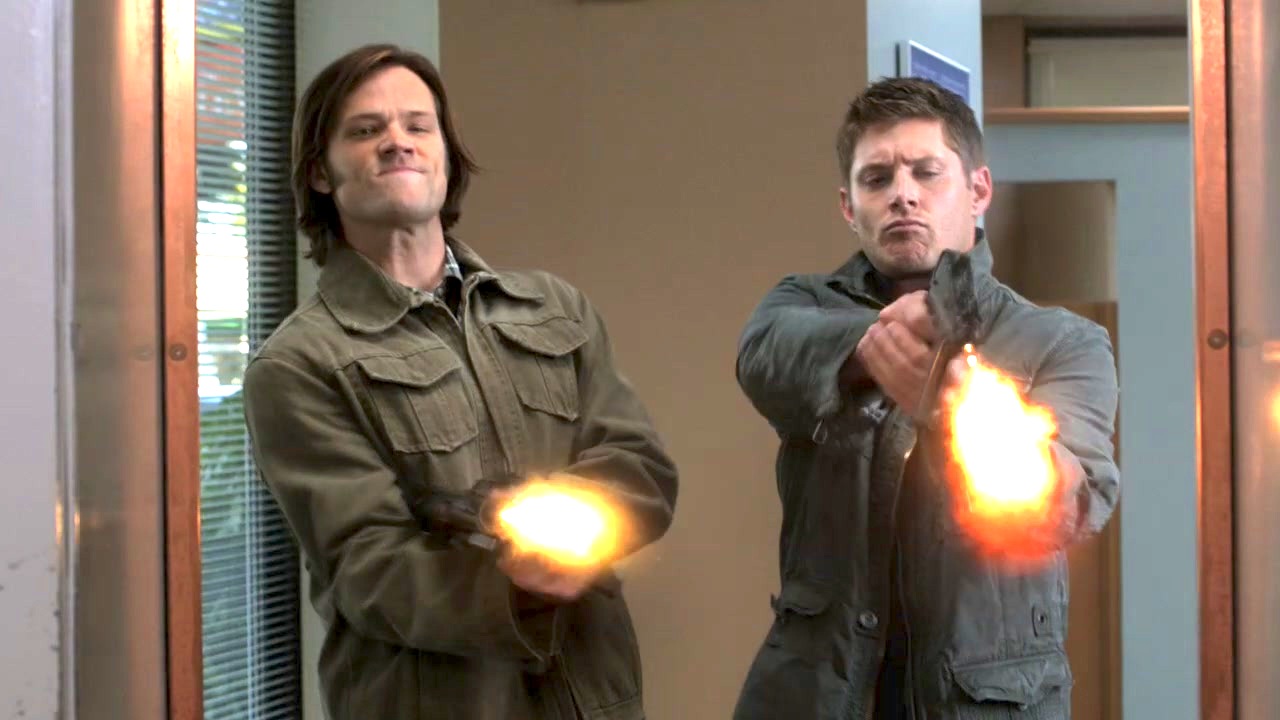
Thompson joined the Supernatural writer’s room in season 7—a daunting and intimidating venture certainly! Did he find it to be that way? His answer, “Yes, there’s an aweomse history to the show that has to be respected. But it was fun, too: got to binge watch 6 great seasons. [sic] “Before Thompson ever wrote his first episode, he took the time to familiarize himself with the history, the tone, and the feel of the show, watching it in full. When he does drafts, Thompson remarks, “as many as The Carver lets me write! as for voice, i always go back to the source, rewatching eps and reading scripts [sic]” Does he have a preference for mythology or standalone episodes? And does he happen to have a favorite episode? He states, “Love both. Standalones are more open but myth eps carry a lot of weight. Can’t choose a fav, too many! Mys Spot, The End, etc. [sic].” Not only did the show itself come with a lot of legacy, there’s the fandom itself. Thompson says about them, “I love the passion. it’s an honor to work on a show with such amazing fans. [sic].” This respect has shown in his episodes well. It gives him the ability to pull in past events into their framework and to not only grasp Sam and Dean, but other characters new and old.
He tells Spinoff Online, “When I joined the show and watched the first six seasons I was shocked at how emotional the story was and how I related it to emotionally. I’m a big nerd. I came for the monsters, but I stayed for the drama. So it’s certainly a challenge to come up with a new take on a monster, but with these two characters as portrayed by these two actors it’s an endless well to draw from.”
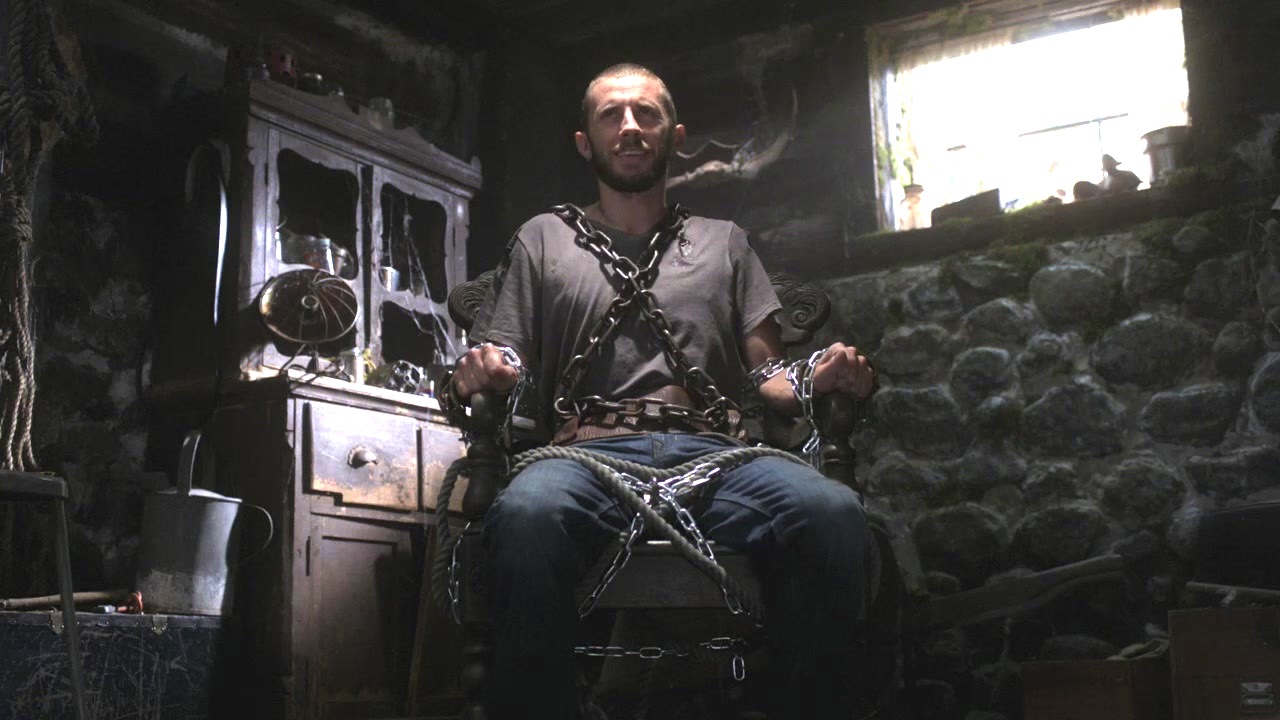
We certainly found Supernatural a deep well for Thompson’s first episode, “Slash Fiction.” This episode gives us a template for Thompson episodes to follow: a brotherly focus, pop culture galore, a human story, and a clear understanding of the show’s history with innovative ways of introducing new characters into its fabric. “Slash Fiction” delved deep into the growing mythology of season 7 surrounding the Leviathans—asking and answering questions about these troublesome and hard to kill monsters. They have one—Chet—chained in the basement of Rufus’s cabin, held under by Don Stark’s spell. It’s up to them to figure out now what might actually at least hurt and slow down one of these monsters.
Unfortunately, Winchester Luck comes into play and there’s much more to deal with. Leviathans aren’t just hungry monsters—they’re also shapeshifters. With that particular trait, it means they can become anyone at anytime. That includes the brothers themselves. The Leviathans need Sam and Dean backed into a corner so they can be neutralized. The easiest method to do that is to commit a lot of heinous crimes while wearing their shapes. So, that’s exactly what they do.
What makes this storyline so engaging and impressive for Thompson’s first script is we’re treated to two versions of Sam and Dean. It shows a deep understanding of the show and its history—and an ability to bring it all together to make a great episode. Without the Leviathan versions of the brothers running around, we wouldn’t see Sam and Dean have to scramble and find new ways to do their jobs.
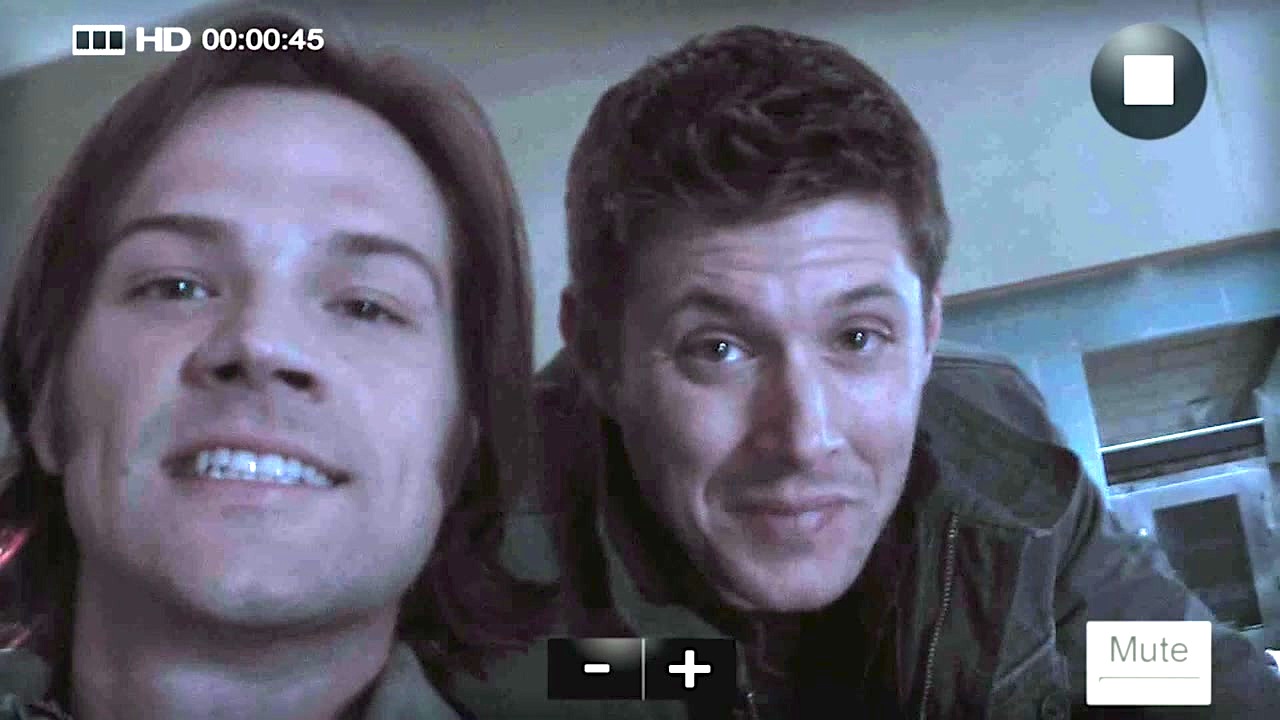
Thompson grasps Sam and Dean’s reaction to the situation well. He put them into a corner with the Leviathan doing unspeakable acts of violence while wearing their faces—and the brothers could only answer one way: by accepting that challenge. He showed us that the Winchester’s routines and usual methods for hunting could be a liability as much as a strength, and how taking those things away made them uncomfortable as to be expected.
We see that best when Sam and Dean are forced to go to Bobby’s ally, Frank. He tells them, “Well, first thing we got to do is wipe all your old aliases. No more rock shoutouts. It’s Tom and John Smith from now on. And no plastic. Cash only. And change your phones on a very frequent non-schedule schedule, you understand? Oh, and try to stay out of view of the 200 million cameras that the government has access to, ‘kay?” It’s a lot to take in, but then he adds insult to injury by smashing Sam’s laptop and dropping the bomb about Baby, “Your doublemints — they’re using a car just like the one outside.”
Instead of having the brothers angst about it or get angry, Thompson treats us to one of the best humorous moments Supernatural has ever had. Oh sure, the glower of disgust on Dean’s face is full of angst, but how can we not laugh at their discomfort with a My Little Pony dangling from the rearview mirror? If that’s not funny enough, the song choice is downright hilarious. Air Supply’s “All Out of Love” pumps through the stand in car’s speakers, and Sam offers to turn it back off when Dean snaps, “Just leave it. Probably gonna be the only thing on.”
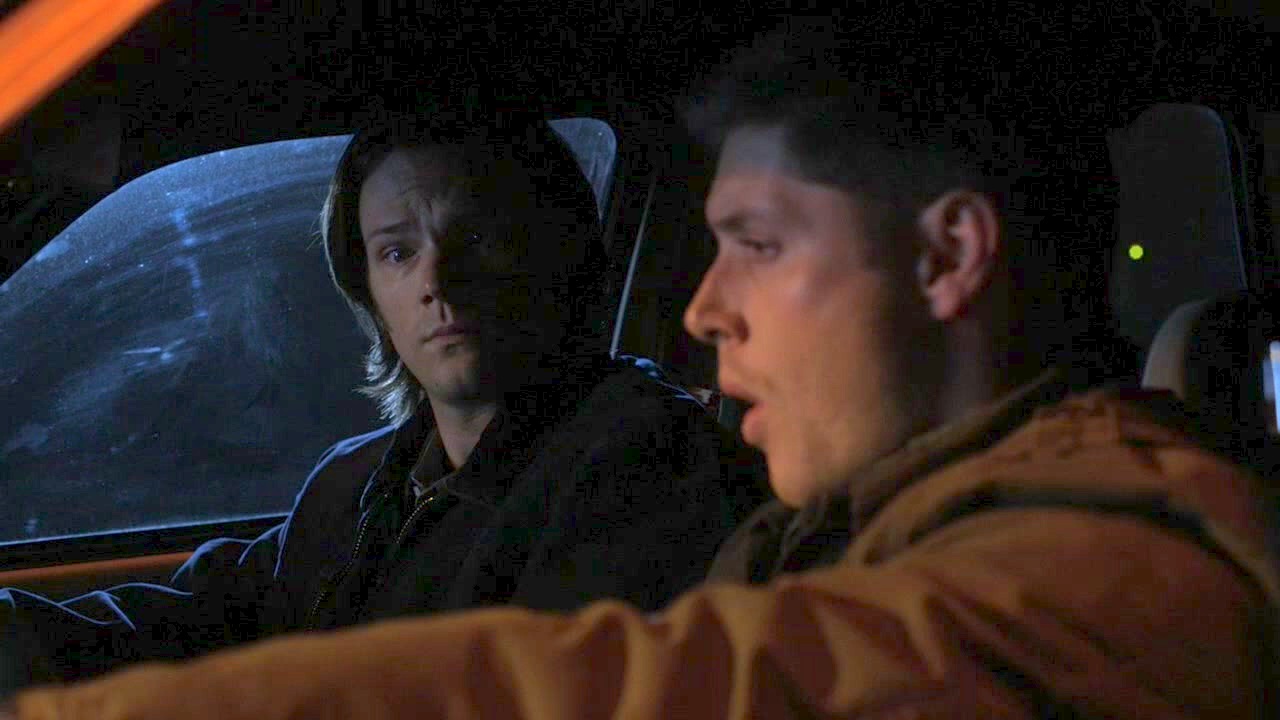
Oh, but this is really just a cover for Dean’s true appreciation for the song. To our delight (and to Sam’s horror), Dean starts to lip sync to the song—and the moment is pure gold from start to finish. It’s a humanizing moment, too. The brothers are caught in a rock and a hard place, ousted from their beloved Impala, forced to ditch their usual rock aliases and routines, and scrambling to formulate a plan of attack against the Leviathans that are making their job all the harder. This moment exemplifies that there’s two possible responses to something like this: either laugh or cry. Why not laugh at the utter ridiculousness of it all?
What the situation also does is afford us an outsider’s look at the brothers. Leviathan Sam and Dean may look and sound like the brothers, but they most certainly are not. They know what the brothers know, however, and that makes them dangerous. It’s a nice stroke of genius to have them start targeting the hunts Sam and Dean have undertaken since the “Pilot,” hitting them in order no less. If committing mass murder wasn’t eye-catching enough, they manage to rub salt in the wound by hitting the cities Sam and Dean saved people in.
The Leviathan version of the brothers allowed for Thompson to have some fun and explore them without having to worry about upsetting their characters and history. They were but they weren’t Sam and Dean, so it allowed for an entirely different view and exploration—albeit for one episode. The Leviathan version is what Henricksen believed them to be prior to learning the truth in “Jus In Belo,” and what the media thought they were: horrible serial killer monsters on a vicious murder spree. It called out to that history—and while they perpetrated these crimes while wearing Sam and Dean’s faces, what it did was let us see what that might be like if they really were the bad guys.
It also showed us just how untrue that was, too. As the brothers get stopped by the police in Iowa, the police treat them as the monsters that the Leviathan image has created on TV. Dean’s call to Bobby certainly doesn’t help matters as he talks about decapitating and burning the monsters, but he never once tries to hurt the police. Neither brother even attempts to pose a threat to the police—instead they try to warn them about what is coming. Sam pleads, “Look, you’re making a mistake. The real killers are back at the diner, okay.” Dean also knows that they’re caught and in a lot of trouble, but he also knows that they have to survive this and try to avoid as many casualties as possible. Dean tells the sheriff, “Let me out of here. Okay, you listen to me, and we’ll live. All right, keep your head down, get to the supply closet. Get anything that says Borax on it — bring it here. Now. Go.”
But the real star of this episode is Thompson’s dialogue. It is razor sharp, witty, peppered with pop culture, and engaging on many levels. Bobby tells Sam and Dean without any sugarcoating, “Well, if you’re gonna be stupid, you might as well be smart about it.” Chet tells them how he knew how to track them, “From your trench-coated friend, obviously. When we were all nestled in at Camp Cas, kind of got the full download. That’s just how we do.” Agent Morris quips about the fast speed Sam and Dean make across the country to be in two places almost at the same time, “That or Batmobile.” Frank remarks on Sam and Dean’s visit, “Well, I’ll be darned. Psycho Butch and Sundance. You’re on CNN right now.”Frank echoes Bobby well, “Now, I’d lay low, ’cause I love life and its infinite mysteries. But you two want to be dumb, that’s fine.” Jody gets in on the great lines, remarking fondly to Bobby, “Well, yeah… Seeing as they were fresh out of “thanks for saving me from liver-eating surgeon” cards at the store.” Dean declares with great indignation about his referencing Dirty Dancing, “Swayze movie. Swayze always gets a pass!”
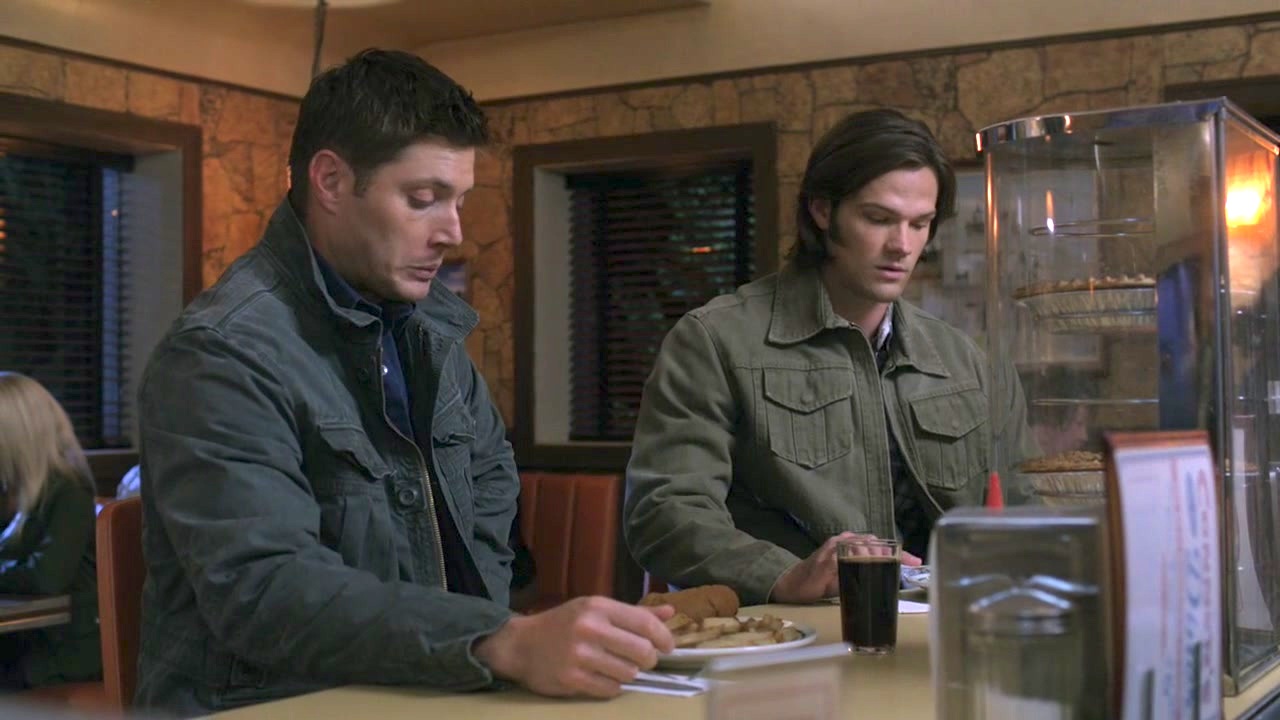
But the best dialogue goes to the Leviathan versions of Sam and Dean. They have great conversations surrounding the real Sam and Dean, such as this:
LEVIATHAN!DEAN:
You know, he has one of these…
LEVIATHAN!DEAN indicates the burger he is eating.
LEVIATHAN!DEAN:
…every day. And in his heart, he thinks they’re almost as good as sex. This…
LEVIATHAN!DEAN puts the burger down on the plate.
LEVIATHAN!DEAN:
…is disgusting.
LEVIATHAN!SAM pushes a plate of salad away from him.
LEVIATHAN!SAM:
Dead plants with creamy goo. It’s like eating self-righteousness. I mean, you tell me which is worse.
LEVIATHAN!DEAN:
I mean, honestly, I just… You know what? I can’t stand the guy. Talk about a hero complex. And he doesn’t have relationships. No, he has applications for sainthood. Oh, and he thinks he’s funny. He thinks he’s a damn comedian.
LEVIATHAN!SAM:
Who has two thumbs and full-blown bats in the belfry?
LEVIATHAN!DEAN points at LEVIATHAN!SAM and LEVIATHAN!SAM points at himself with both thumbs.
LEVIATHAN!SAM:
I’m serious. It’s nothing but Satan-vision on the inside. I mean, how he’s walking around in a jacket with detachable arms is beyond me. You know, I had a brother with this many issues once.
LEVIATHAN!DEAN:
Yeah?
LEVIATHAN!SAM:
Know what I did?
LEVIATHAN!DEAN:
Hmm?
LEVIATHAN!SAM:
I ate him.
LEVIATHAN!DEAN:
Of course you did.
It makes us almost want to agree with them—yet be as indignant as Sam and Dean are about the whole situation itself. This conversation is snappy, tongue in cheek, and direct. It solidifies the Leviathan versions as monster all the while showing their cleverness to understand the brothers—and yet we can tell in this exchange that they’ve made the critical error most foes do: they underestimate them, simplifying just who Sam and Dean really are, and allow for the brothers to eventually lay the ground work to get the upper-hand. Thompson manages to really put all of that into this one moment of dialogue. He gives us great lines that can be quoted often and sharp writing that sets up what is to come.
Most of all, while we are horrified by their monstrous behavior, we’re also given a moment to laugh. It gives us that breather before they “Pumpkin-and-Honeybunny’d a diner there.” That is horrific and chilling, reminding us that while these monsters may wear Sam and Dean’s charming faces, they are vicious and cruel monsters nonetheless and they will do horrible things to people not just because their boss, Dick Roman, orders it, but because it’s fun.
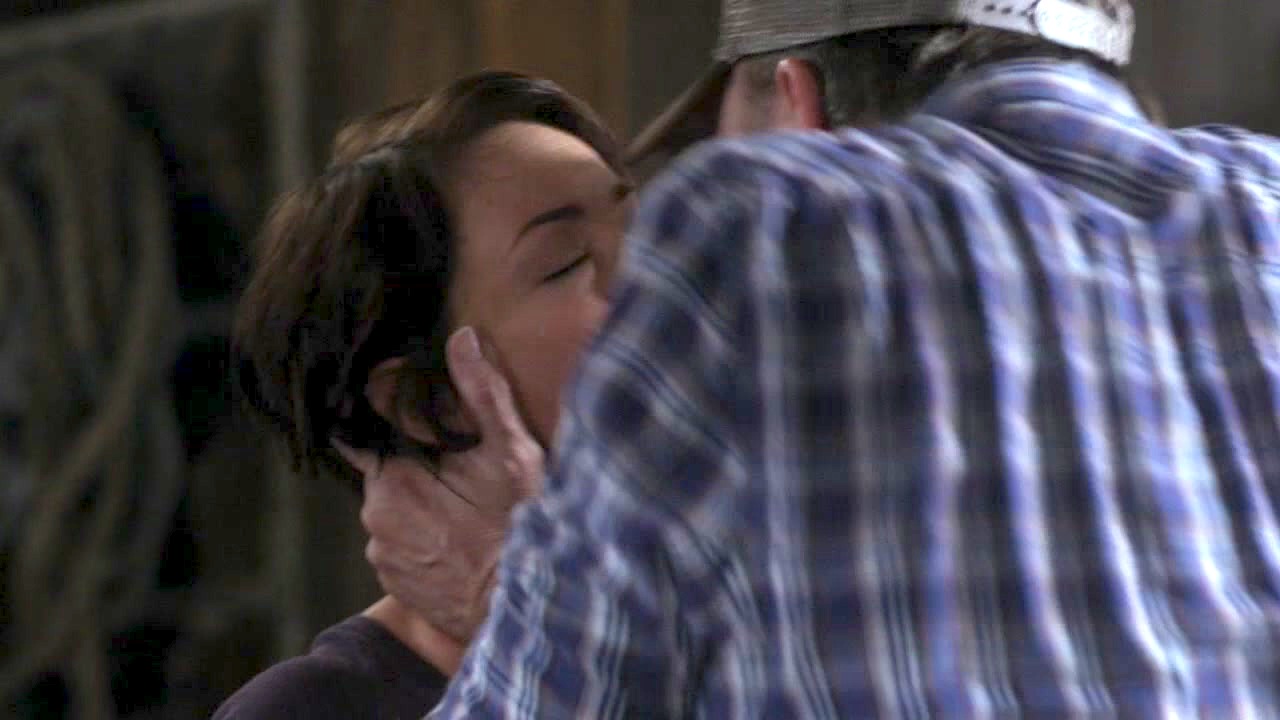
In the other storyline of “Slash Fiction,” we see Thompson write a human story for Bobby and Jody. He grasps their characters well, giving both a warmth all the while tugging on our heartstrings. We can sense a “wrong place, wrong time, but right intentions” about the two of them. Despite being on opposite sides legally at one point, the Sheriff and Bobby have made a fast alliance through their experiences. There’s a great humor in watching Jody simply accept the fact that Bobby has yet another monster chained up in the basement—and she states it best when she says,”So I won’t go downstairs.”
Is in their exchanges that we see the humanity that contrasts with the monster in Chet. Jody wants to thank Bobby any way she can—from cooking to making a sandwich to sprucing up the cabin—and true to Bobby’s nature he just won’t accept. There’s a gentleness between them. Gratitude is in every gesture of Jody’s, in the tone of her words and in her gentle smiles. Bobby is all gruff on the outside, but we can tell that he’s only brushing off her praise, especially in the line, “Just doing my job, which nobody pays me for.”
While Bobby exhausts everything he can on Chet, it is Jody’s mishap with soap that sets up one of the greatest moments for these characters. Bobby is stunned when soapy water drips from the ceiling, landing on Chet, who screams in agony. Once he rushes upstairs, he finds Jody wringing out a rag—and in a moment of spontaneity, Bobby takes his chance to thank Jody—by kissing her. Jody is surprised and almost pleased—and it leaves us the viewer as breathless as the Sheriff.
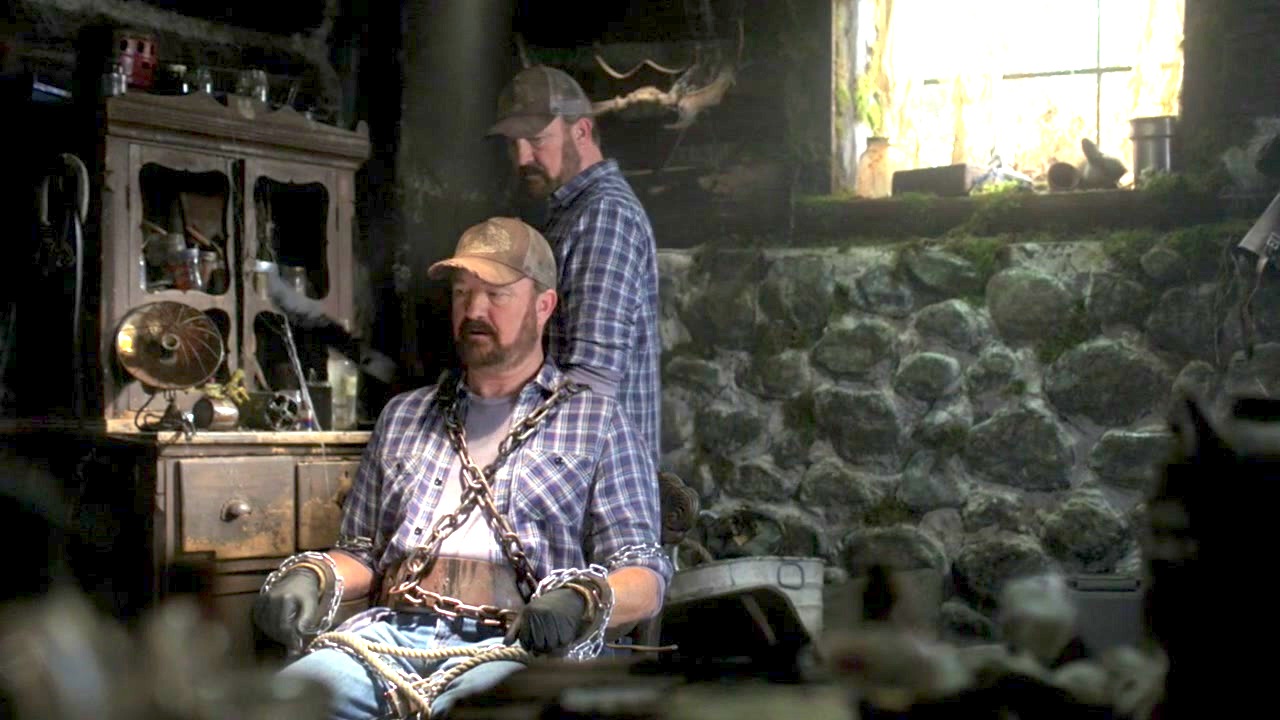
At the same time, much like Sam and Dean have to face monstrous versions of themselves, Bobby must face Chet wearing his face—and confront some of his darkest thoughts. Bobby handles this with his usual poise and gruff exterior—and yet we can tell that it bothers him a bit more than he lets on. Chet opens up some old wounds, poking at a sensitive subject with the line, “You and Dad. Now, that’s a can of scorpions.” But what’s fascinating about Thompson’s writing here is it’s Chet that also defines that human intangible in Bobby. He tells Bobby, “But, you know, deep down inside… you’re no cynic. You still hope.” In this exchange, Thompson has really summed up the complexity of Bobby’s character without cheapening or downplaying it.
That doesn’t mean Bobby doesn’t get his own shot in. He tells Chet, “‘A man’s reach should exceed his grasp.'” Bobby has lived this long by understanding what that means. And while Chet may be able to declare it “lovely” and understand that Bobby still hopes for the world, he will never understand it—nor will any of the other Leviathans. They are so certain in their superiority, their strength that they don’t realize the peril they place themselves in until it is too late to stop the Winchesters in “Survival of the Fittest.”
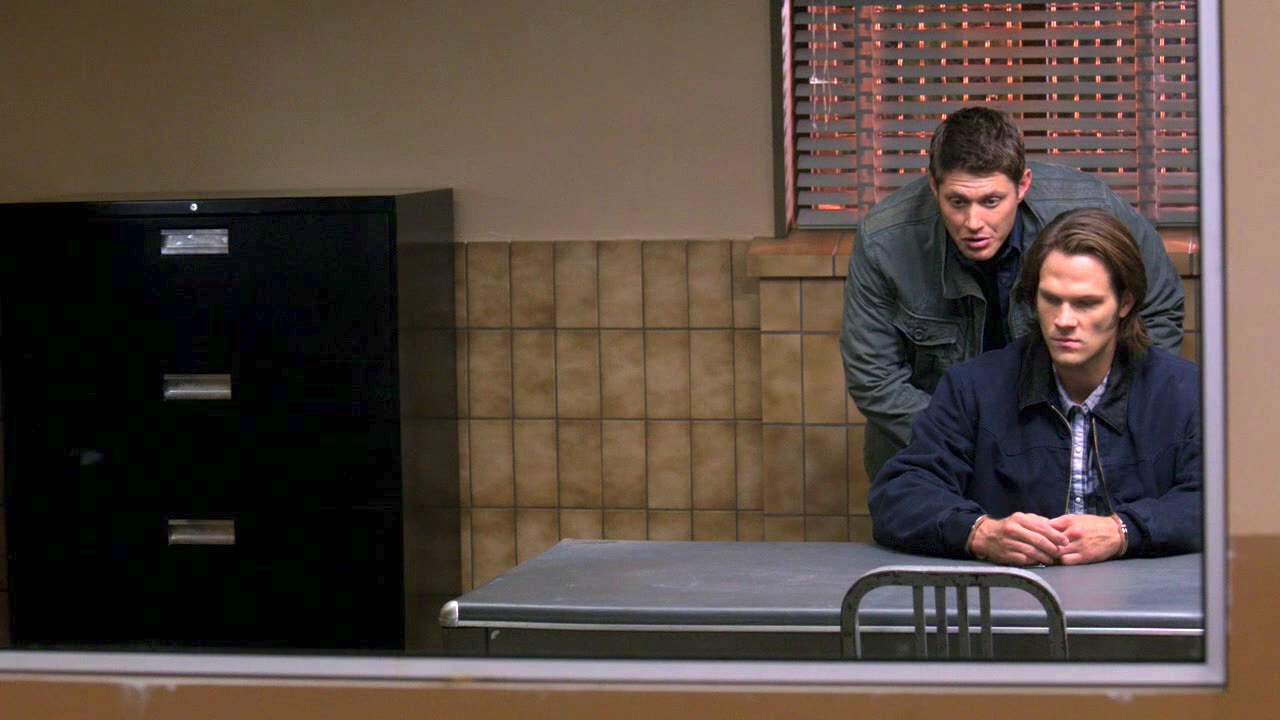
Of course, we are left with Leviathan Sam and Dean pulling the trigger on their best bullet. They know the secret that Dean has kept from Sam—killing Amy—and while the act itself isn’t the problem, it is the trust and lack there of that makes this a dangerous topic. Leviathan Dean tells Sam that Dean did it simply because, “Dean… thinks you’re nutballs. He thinks you’re off your game.” This bullet lodges its way into Sam’s heart, and it is the wedge the leviathans need to push the brothers apart—albeit temporarily.
Thompson’s debut episode captured so much of the show’s story, character, and tone. The episode’s success allowed him to claim a spot on the writing staff. About that, Thompson states, “They had a slot open and I was lucky enough to do get it. [sic]” I’d say, as fans, we were lucky, too.
In the second half of this profile, we’ll be looking at the rest of his episodes, and how he’s brought his own stamp to the show in the process.


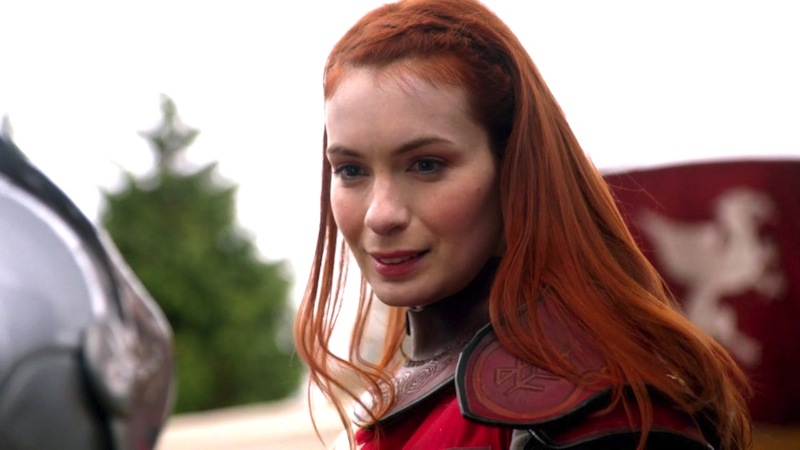
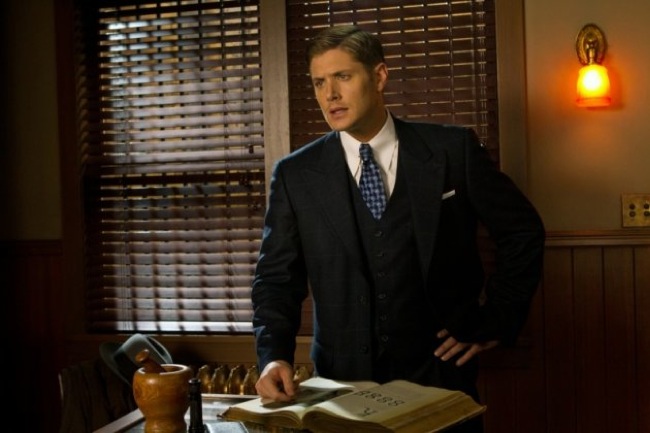

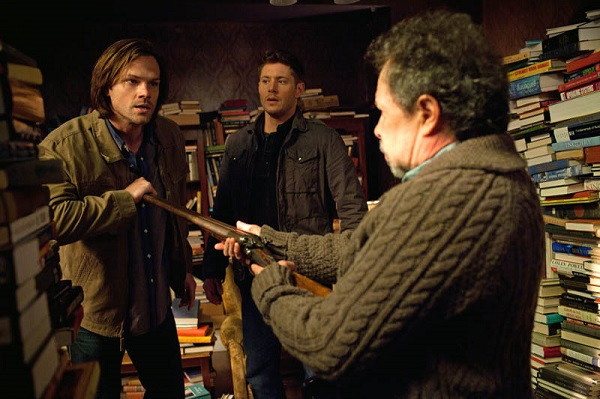
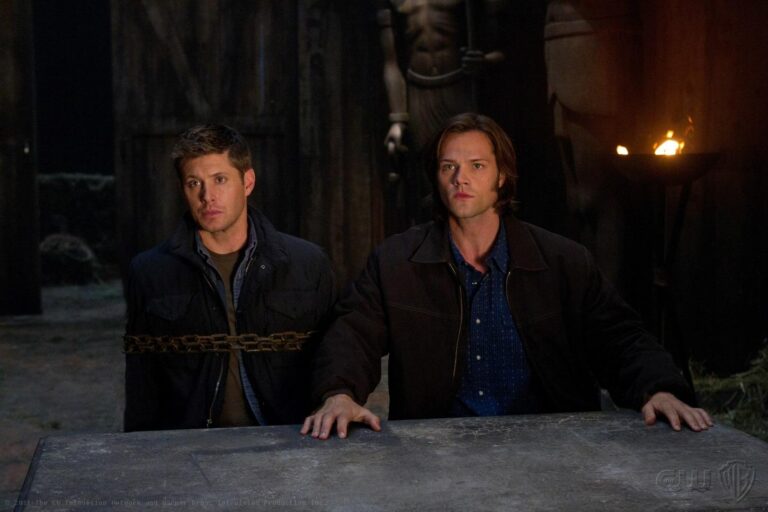
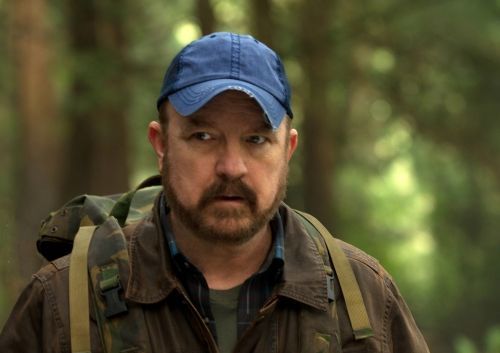
Thank you for this article. Robbie Thompson is one of my favorite writers ever on the show. I always look forward to his episodes and until we lost Charlie I always looked forward to her adventures with the boys. I think Pac Man fever was my favorite but I really did love them all. I loved her chemistry with the guys.
It isn’t hard for me to pick a favorite because I think Baby is arguably the best episode of the entire series. I exemplifies Robbie’s grasp of the brothers relationship for me. And it seems to be something that he has always understood about Sam and Dean. They really do care about, love and like each other. I’ve probably watched it 10 times already.
I am one that also really liked Bitten. It was a different kind of monster story told from the monsters POV. I thought it was so well written and acted.
Since you wrote this article originally Robbie has also given us the very clever and fun Fan Fiction, a few more Charlie episodes and Angel Heart (the best of the Claire episodes) with the sweet ending to Jimmy and Amelia’s story.
I also thought the episode he wrote for Jericho was the best of that series as well.
I hope he stays with the show until the end. He is definitely a huge asset to the show.
Thanks for the comment.
I’m glad you enjoyed. When it was suggested that the writers for the site pick their fave article(s) this is the first one that came to mind. It was so much fun delving into his writing through his career prior to Supernatural. I found that looking at those other works really helped me understand him as a writer more and how he approaches writing the show.
“Bitten” is a great character study to me. It studies the monsters the boys hunts, how tragic the supernatural world really is to those who are attacked by monsters or are turned into them. The beginning when they’re so hopeful for what they will do with the rest of their lives and by the end all of it’s destroyed by that single moment of weakness by the one werewolf lapsing at the wrong time, setting off that chain of events. Usually we see it through Sam and Dean’s POV, but to see it through the college group as it fell apart broke my heart, really.
I also think, as for outside Supernatural stuff, I’d have to include his Silk comic if I were to write this article today. I agree with your thoughts on his episodes after this piece was written, though. He truly nailed the series in a nutshell with Baby, made a statement about what the show is really about and why. Fanfiction was such a beautiful love letter to us fans, too. It captured our quirks, our friendships, and our relationship with the show in a way that no other writer could have done.
I, too, hope he stays with the show till the end, but I know I’ll follow Robbie anywhere he goes.
Thanks again.
Wow, just wow. I can’t even imagine how long it took you to write that. It was very in depth and insightful. Mr. Thompson wrote so much good stuff, didn’t he. I liked Charlie, but no one is safe on this show and it always makes us laugh and cry. My dad was the one who gave me The Hobbit to read when I was a kid along with other science fiction, and I’ll always be grateful to him for that. I can’t watch Bitten, the shaky camera makes me dizzy. Thanks for a long, interesting article.
Thanks for the comment.
This little love letter of mine to Robbie took me about a month. I sat down and watched everything he ever wrote, took deep notes on it all, and then tried to talk about it all. I’m glad you liked the end result so much! It was so worth it, truly. Yes, the Hobbit seems to be a common gift from dads. I love that. As for Bitten, I can understand how that can be jarring.
Thanks again.